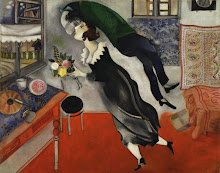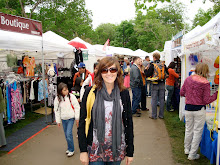Even though I can do a lot more now, people sometimes can't understand why there are times when I can do certain things and times when I have to cancel. They think "I saw her yesterday and she was fine. Why isn't she here today?" or "Why did she have to cancel again?" I read the following essay on this great chronic illness blog. (I'm not sure why she chooses to use spoons. Maybe just a random object to create a visual, but the principle is what matters.)
The Spoon Theory by Christine MiserandinoThank you to all my friends and family that add spoons to my days :) And thank you to all my friends that understand when I have to rest, and I have to cancel plans. Love ya!
Let's face it. No matter how understanding people are, sometimes it's just daunting to explain our illness time and again to new people or even to the people we already care about. It's tiring. But if someone cares enough to read it or hear about it, the Spoon Theory sticks! In case you're pressed for time, I'll summarize: Imagine a bunch of shiny, dinner spoons in your hand. Each time you spend a little energy, take one away. So for someone with chronic illness, a spoon might be taken away with the simple act of getting out of bed (I know that's true for me). Miss breakfast because you're running late? Take away a spoon. Miss the bus and have to walk a few extra blocks to make it on time? Take away two. And if you have chronic illness, it's more than likely you have much fewer spoons to start with anyway...
That's the genius of the Spoon Theory. It helps people who are chronically ill help people who are chronically healthy to understand; to see that every decision and circumstance throughout the day has some kind of effect. Things most people don't even think twice about. In my days, everything must be measured and weighed. This can be very frustrating (even downright depressing). Whatever it is you feel, remember that you're allowed to feel it. Don't waste your spoons on feeling bad... about feeling bad! Most of us put so much pressure on ourselves to be strong and not let our illness "beat us", but why look at it this way? Chronic illness, by definition, is not going away -- so it's best not to make an enemy out of it (at least that's what I've found).
I give myself time to feel however I feel about my "spoon deficit". Sometimes I'm just pissed off. I want to cry or scream. Sometimes I'm actually quite motivated by it all. Sometimes I'm confused and questioning why life is just a little harder for me. Sometimes I feel proud that I've come this far without a full "spoon count". Sometimes I want to pull the covers over my head and give up or even pity myself (but this one can be tricky...I think it's important to put a time limit here, which I'll explain in a future post). No matter how we spin it, having fewer spoons isn't fair and it's more than okay to have a reaction to that. In fact, wouldn't it be strange if we didn't care at all? The way I see it, that apathy would mean someone else was in the driver's seat. Our feelings show we're still tuned in to our lives.
I might sound confident, but only recently am I starting to really own my limitations; to explain them to others without guilt. I owe a big part of that to the people who are now in my life (who I'll definitely single out later, don't you worry guys). These friends aren't easy to find, but they're out there. They've lightened this load for me and always, always understand. That brings me to the next point about the Spoon Theory. Of course, it's not all about LOSING spoons! Have a great talk with a friend? Laugh a little? Get a spoon or two back...there's no better medicine. Get a care package from a family member? Cuddle up with your dog? You'll definitely be up a few more. It's all a balance and it forces us to really think about our actions and weight what's important to us. I think that's the good that can be found here.
Instead of spending time feeling cheated, hurt or sad about our illness, is it possible that we can see our lack of spoons as an opportunity? It does make us stop and think about things other people don't have to, but here's an example of the unexpected good. Because of Spondylitis, I've come to realize who I can count on...who the people worth spending my spoons on are and who will replenish my spoon count. I've found ways to shorten my tasks at work because I have to. I've come to appreciate nights when I do have enough energy left to actually cook or clean - things I might otherwise see as mundane chores. Simple walks are tremendous pleasures. In some ways, dealing with illness can make you more efficient and much more appreciative of the spoons you do have. Thanks for reading :)







